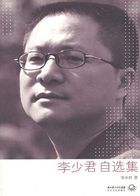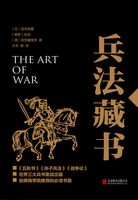The mind can never perceive any thing directly but the sensation, but then this sensation as a -- phenomenon must have a cause.He argues this on the principle, perceived to be intuitively certain, that every effect has a cause.The sensation then must have a cause; but then it has not, like some other of our mental states and affections, -- such as our sentiments and perceptions of duty, -- a cause within the mind itself; it must therefore have a cause without the mind, and this cause is matter.It is clear as to this inference, that it will be acknowledged frankly only by those who look on causation as an intuitive conviction.If belief in causation be merely experimental, it is doubtful whether {335} we should ever discover the law to be universal, for by far the greater number of our sensations would be phenomena of which we could discover no cause.We might group the phenomena in some way, but we should not be able to say logically whether they have a cause or not.But leaving this, as perhaps only a doubtful point, we can affirm confidently that even if, by such a process, we could infer that these sensations have a cause, it must be an unknown cause, a cause of which we have no experience.But matter seems to be something known.We certainly have an idea of extension, or rather of something extended -- Iwould add, a belief in an extended substance.Our belief is not in an unknown cause, but in a known existence,-- known as existing and extended.But we never could reach the belief, we never could reach even the idea of space which we certainly have, by any logical process proceeding on the existence of a sensation.From a sensation, which is unextended, we cannot rise to the idea of an extended thing.
Logically and consequentially, Brown's theory of the cognition of matter prepared the way for that of J.S.Mill, who makes our idea of body to be of a mere possibility of sensations.
(6) He overlooks some of the distinguishing attributes of the reproductive powers of the mind.Conception, memory, and imagination are merely exercises of simple suggestion.
He does not give the phantasy or imaging power a separate place."Memory is not a distinct intellectual faculty, but is merely conception or suggestion combined with the feeling of a particular relation, -- the relation to which we give the name of priority." Observe what confusion of things we have here: memory is a " suggestion, " but implies a "relation, " which is represented as a ,feeling;" and "priority," implying the idea of time past, present, and future, comes in so quietly that we are not expected to notice it, though it is one of the most profound of our ideas.In imagination, he overlooks that high intellectual power which binds the scattered images in a unity, often of a very grand character.A simplification gained by overlooking these characteristic qualities is altogether illusive.
(7) In his account of the faculties of relative suggestion, he mixes up two things which ought to be carefully distinguished, -- the suggestion, which is a mere law of the succession {336} of our ideas, and comparison, by which we discover the relations of things.He cannot make these one by calling them by the one name of relative suggestion.
(8) He has discovered an important element in the process of reasoning.He sees that in reasoning there is the explication of what is involved in the conceptions; but he does not notice the laws of comprehension and extension involved in drawing one conception from another or others.
(9) He has a fine exposition of the emotions, dividing them according to the principle of time, -- as immediate, retrospective, and prospective; but be overlooks two essential elements.One is, the idea or phantasm as the basis of the emotion.We cannot have a feeling towards a mother unless we have an idea of her.He is guilty of a greater oversight: he has taken no notice of those springs of action or motive principles, dwelt on by Stewart,-such as the love of self, of our neighbors of society, of power, --which call forth and guide the emotions in certain channels.
(10) He does not distinguish between our emotions on the one hand and the wishes and volitions on the other, -- a distinction always drawn in one form or other by our highest moralists, and strongly insisted on by Kant and his school in Germany.Surely there is a difference in kind between such an emotion as that of hope or fear on the, one hand and a purpose or determination to act on the other.With Brown, will is merely the prevailing desire, and desire an emotion.
(11) His view of the moral faculty is very defective.
It is represented by him as a mere class of emotions.He calls them " emotions of approbation and disapprobation."The very epithets employed by him, "approbation" and "disapprobation, " might have shown that judgment is involved.Conscience is not only an emotive, it is a cognitive power, revealing to us what ought and ought not to be done.Dr.Chalmers shows that be has overlooked the great truth brought out by Butler, that conscience is a power in the mind, not simply co-ordinate with the others, but authoritative and supreme, claiming subjection from all the voluntary powers.Nor ought it to be omitted that be does not bring out fully that the moral faculty declares man to be a sinner.He thus constructed an ethical system, and delivered it in Edinburgh, -- which sometimes {337} claims to be the metropolis of evangelical theology, without a reference to redemption or grace.No teachers ever inculcated a purer moral system than Reid, Stewart, or Brown; but they do not seem willing to look at the fact that man falls infinitely beneath the purity of the moral law.
They give us lofty views of the moral power in man, but forget to tell that this power condemns him.Taking up the demonstrations of the Scottish metaphysicians in regard to the conscience, an inquiry should be made,-How are they affected by the circumstance that man is a sinner? This was the grand topic started by Chalmers, and by which he effected a reconciliation between the philosophy and the theology of Scotland.
(12) He has not been able to give an adequate account of some of the profoundest ideas which the mind of man entertains; such as, that of personal identity, of power in substances, of infinity and moral good.The tendency of his philosophy was counteracted in the next age by Coleridge, Cousin, and Hamilton, drawing largely from German sources.















